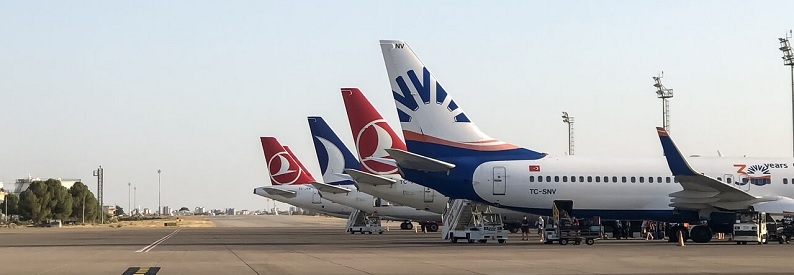Cyprus seeks EU sanctions on migrant-flow carriers

The government of Cyprus has called on the European Union (EU) to sanction airlines that aid illegal migrants in entering the country via the Turkish-controlled region of northern Cyprus.
Local media said Interior Minister Nicos Nouris had asked fellow EU justice and interior ministers in France on Thursday to consider the proposal which would echo a similar plan taken against Belarus last year wherein Brussels warned it would sanction any airlines found to be involved in ferrying Iraqi, Syrian, Afghan, and Yemeni migrants to EU borders in Poland and the Baltic states.
For its part, Nouris has said that more than 85% of applicants for international protection in Cyprus have gained access to the republic from Turkey or via the north.
Cyprus is de facto partitioned into two separate states – the internationally-recognised Republic of Cyprus (ROC) in the south and the Turkish Republic of Northern Cyprus (TRNC) – recognised only by Turkey. The ROC still lays claim to the occupied territories despite having no control over them. As such, human traffickers have taken advantage of the Republic’s refusal to enforce a hard boundary with the north, given it would be tantamount to recognising a hard border and therefore a separate territory, as well as the TRNC’s lax visa policy, resulting in a flood of immigrants arriving not only from Syria, Iraq, Afghanistan, and Yemen, but also from Pakistan, Bangladesh, Nepal, Cameroon, the Democratic Republic of Congo, Nigeria, Sierra Leone, and Liberia.
As with the Belarus scenario, in which Belavia and Cham Wings Airlines were sanctioned by the EU for facilitating migrant flows, Nicosia is seeking sanctions against carriers bringing migrants to Ercan/Lefkosa in the TRNC. At the present time, Turkish Airlines and Pegasus Airlines are the only large-scale operators serving the northern airport from various points across Turkey.
Nicosia is therefore seeking dialogue between the European Commission and Turkey so that the latter’s lack of cooperation on the migration issue can be raised. Given the prospect of being excluded from the EU market, Turkish Airlines, in November last year, moved to prevent all Iraqi, Syrian and Yemeni citizens from flying on to Belarus.
With that said, the Cypriot news outlet Sigma said the deputy director-general in charge of migration control, Beate Gminder, told Nouris last week that discussions are indeed ongoing in the European Parliament and other institutions and that various tools – including sanctions – may be available in the future.
